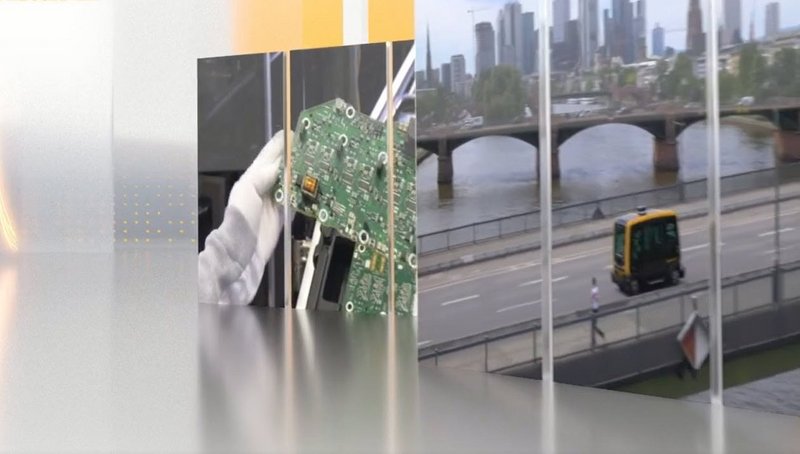„Innovation needs new rules of the game“
Proper handling of intellectual property plays an important role for highly innovative companies like Continental. Patent expert Dr. Roman Bonn, Head of Intellectual Property at Continental, explains in an interview what is particularly important in the age of the Connected Car.
What changes for Continental when inventions are no longer just about hardware but increasingly about software and networking technology?
More and more software and electronics in cars mean that we are also dealing with more and more technical standards. The individual components must be interoperable, i.e. capable of interfacing. That means the exchange occurs via previously defined technical standards – such as 4 G or 5G. But also, Bluetooth, for example, is such a standard. This means there is a binding solution for all – but only one. A monopoly. This has consequences for everyone who wants to use this standard – and thus for all inventions and patents contained therein.
What does that mean in concrete terms? Are standards a problem?
No, standards are useful in themselves. Otherwise, there would be umpteen different, incompatible solutions – even for consumers. Just think of charging cables and plugs for smartphones or electric cars. Standards make life easier in many respects. And in principle, there are rules to ensure fair dealing with intellectual property in standardized technology: Anyone who owns a patent on an invention that is part of a technical standard can first rejoice: Everyone will use his solution and therefore request a license to use it. But since it would be unfair to first agree on a common solution in the interest of all – which means that many others give up their solution – and then charge high license fees for it, there is the so-called FRAND rule.
FRAND – what does it stand for?
Fair, reasonable and non-discriminatory. According to this principle, owners of patents that are implemented in the standard – so-called standard-essential patents, or SEPs for short – must give a license for those SEP to anyone who wants one. In theory, this sounds very well regulated, but in practice, unfortunately, cases often end up in court. It is not clearly defined what fair, reasonable and non-discriminatory means. We urgently need new rules for innovation if we want European technology companies and suppliers like Continental to provide growth and jobs in the field of connectivity and the internet of things.
Why are cellular patents so important for modern vehicles?
Many modern functions such as real-time data navigation, over-the-air updates, remote vehicle diagnostics, connected traffic- or real-time fleet management, connected safety systems with vehicle to X communications and the automatic emergency call, the so called eCall-system, which has been mandatory for new cars in the EU since March 2018, are not possible without wireless networking – i.e., cellular communications. But if you think further, it's not just about connected vehicles, but connected devices and machines of all kinds. So, the problem of patents affects everyone who is driving the Internet of Things because they have to use mobile communications standards like LTE.
Who actually determines what is standard and whether a patent is really essential for a technical standard?
Standards are defined by standardization bodies. Various industry representatives are members of these organizations. No one first examines whether a patent is essential to the standard. The inventors/owners of the patents declare themselves which patents are essential for the standard. Whether this is really the case often only becomes apparent when the case ends up in court. Then judges examine whether the patent is "legally valid", as it is called in legal jargon. Many of the patents declared as SEP do not really stand up to such scrutiny. But where there's no plaintiff, there's no judge.
What happens if there are no clear rules under which conditions a company can obtain a license for standard-essential patents?
Technology companies, that need to implement standard-essential patents for their innovations will sooner or later produce fewer and fewer innovations. When it comes to cellular connectivity and the IoT, we see this issue arising for many European Tech Companies. It will either be too expensive or no longer possible for them to develop new ideas which are based upon standards. In the end, the consumer will pay, who will have no choice or will have to help finance the overpriced licenses via the product price.
What solution do you propose?
Since even the threat of injunctions distorts (for an explanation, please see our patent wiki) the results of a licensing negotiation between the patent holder and the company seeking to license, we have developed what we call a safe harbor concept. This involves a multi-step mechanism in which the company seeking a license is protected from injunctive relief for a fixed period of time, for example, one year, so that constructive and sincere negotiations are possible. On the other hand, in order for the patent holder to be protected from stalling tactics, the companies seeking a license must meet certain requirements, such as putting security for the required license fee in an escrow account and a few more. In short, the concept creates broad incentives for both sides to negotiate while providing leverage to actually find negotiated solutions.
Back to overview Intellectual property and innovation in times of transition


